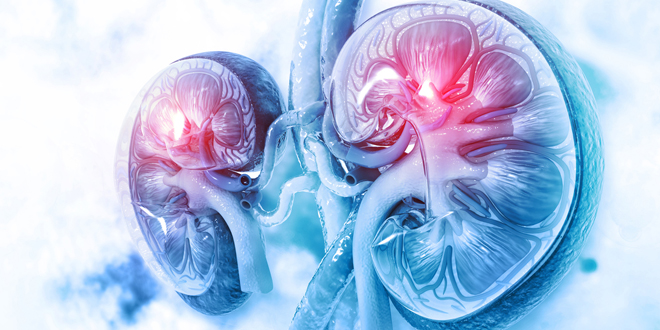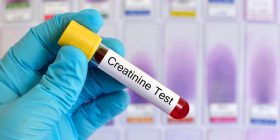Kidney disease is a common complication of diabetes, and diabetes is the leading cause of kidney disease in Canada. It is estimated that 50% of people with diabetes will have signs of kidney damage in their lifetime. Read on to learn if it is possible to reverse diabetic kidney disease.
Kidney disease in people with diabetes
People with diabetes have an increased risk of developing kidney disease, especially if they have consistently high blood sugar and high blood pressure levels. This is because high blood sugar and high blood pressure levels can cause the nephrons in the kidneys to become damaged. Nephrons are filtering units in the kidneys that contain many blood vessels; when they are impaired, they cannot filter blood and waste products properly. This in turn leads to diabetic kidney disease.
Because it is common in people with diabetes, the Diabetes Canada guidelines recommend that adults with type 2 diabetes should first be tested for kidney disease when they are diagnosed, and adults with type 1 diabetes should be tested 5 years after their diagnosis. After that, people with either type 1 or type 2 diabetes should be tested every year.
What is the timing for damage to the kidneys if you have diabetes?
Most people with type 1 diabetes develop changes in kidney function within three to five years of their diagnosis. About 30 to 40% of people with type 1 diabetes will develop more serious kidney disease, usually between 10 and 30 years after their diagnosis.
Less is known about how long it takes kidney disease to develop in type 2 diabetes. This is because type 2 diabetes can remain undiagnosed for some time, so even people who have recently been diagnosed may already have some form of kidney disease. However, it is believed that it follows a similar course to type 1 diabetes, but occurs at an older age.
Is it possible to reverse kidney disease once it happens?
It is believed that kidney disease cannot be reversed. Its progression can only be stopped or delayed through good blood sugar and blood pressure control, and medications. That’s why it is important to have your kidney function tested regularly. The earlier the diagnosis, the better able you and your healthcare team will be able to manage diabetic kidney disease.
Steps to improve kidney health
Check out these tips for maintaining or improving your kidney health:
- Meet your blood sugar targets. For most people with diabetes, blood sugar levels should be 4 to 7 mmol/L two hours before a meal and 5 to 10 mmol/L two hours after the start of a meal.
- Control your blood pressure. For most people with diabetes, blood pressure should be less than 130/80 mm Hg.
- Maintain healthy lifestyle habits. These include: eating healthy foods, and limiting intake of salt and sodium; exercising regularly; maintaining a healthy weight, or losing weight if needed; and quitting smoking.
- Take your medication as prescribed. Your healthcare team will prescribe medicine based on your specific needs. This may include medications to help you meet your blood sugar and blood pressure goals, as well as to slow the progression of kidney disease.
- Have your kidney function tested. Most people with diabetes should have their kidney function assessed annually through blood or urine tests.
This article was sponsored by Janssen Inc.
 Diabetes Care Community Learn, connect and care
Diabetes Care Community Learn, connect and care







